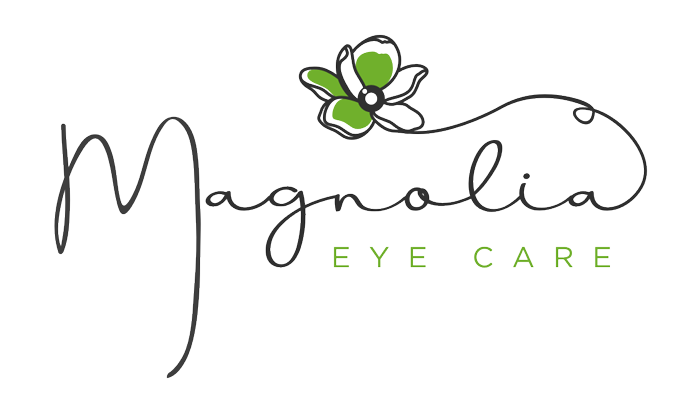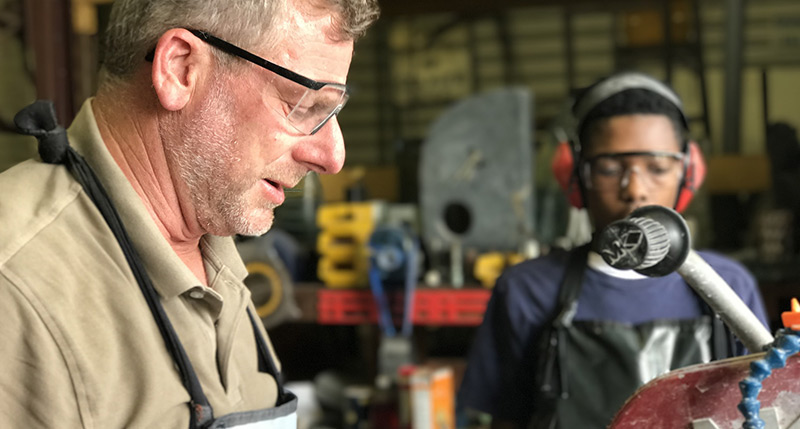March is Save Your Vision Month, a time to remember that we’re born with one pair of eyes to last our entire lives, and serious injuries can happen in an instant. With a focus on awareness and adopting a few simple best practices, you can protect your eyes for a lifetime.
Protect Your Eyes from Injury
Protecting your eyes—and the eyes of your loved ones—from injury is one of the most important actions you can take to maintain good vision. Up to 90{292cc3b5301b60554126ab1d65e6244992d5e505d8a733ba82d7605faad99183} of eye injuries seen in doctor’s offices and emergency rooms could have been prevented by simply wearing protective safety glasses or goggles!
Many people incorrectly believe that eye injuries are most common at work, such as in manufacturing settings or on construction sites, and aren’t on the lookout for eye dangers in our daily lives.
But nearly half of all eye injuries take place at home, not at work. And 40{292cc3b5301b60554126ab1d65e6244992d5e505d8a733ba82d7605faad99183} of those injuries occur while playing sports or engaging in other recreational activities.
The most common types of eye injuries occurring at home are caused by hazardous products and chemicals—including bleach, oven cleaner and pest control sprays. However, non-chemical items can be dangerous, too. Grease and oil can splatter into your face while cooking, curling irons can slip and seriously injure an eye, and loose rugs can cause you to trip and fall and potentially land on something sharp.
Outdoors, activities that pose the most significant threats include mowing the lawn and trimming hedges or bushes, or similar scenarios where small bits of debris are flung far and wide by power tools.
It’s an unfortunate statistic that only 35{292cc3b5301b60554126ab1d65e6244992d5e505d8a733ba82d7605faad99183} of people take steps to protect their eyes while working on repair projects, yard work and home maintenance. Fewer still wear goggles while playing sports.
To significantly reduce your risk of eye injury, use common sense while working around the house, and stay diligent about household hazards that could damage eyesight. Read labels thoroughly, use grease shields to protect from splatters, secure rugs and railings, and stay focused and present while using dangerous tools.
It’s a best practice to wear safety glasses or goggles during any activity with the potential for eye injury, and encourage your kids to wear them, too. Setting a good example for kids to follow will help ensure they grow up with an awareness for eye safety, which will set them up for a lifetime of healthy vision.
Eat for Eye Health
As important as it is to protect our eyes from the outside in, we also need to support our eyes from the inside out! Living a healthy lifestyle can help delay or even avoid many chronic diseases, including certain eye diseases such as cataracts and macular degeneration.
To keep your eyes healthy and seeing your best, pile your plate with whole, colorful foods full of these essential vitamins and minerals:
- Vitamins C, D and E
Protect against dry eyes, cataracts and macular degeneration with sweet peppers, strawberries, salmon, sunflower seeds, almonds and hazelnuts.
- Flavonoids
The antioxidant effects of these plant molecules, found in citrus fruits, blueberries, red wine and tea, can also help you steer clear of cataracts and macular degeneration.
- Beta carotene
Carrots aren’t the only source of this well-known vision supporter: Sweet potatoes, butternut squash, spinach and kale are all loaded with it, too.
- Lutein and Zeaxanthin
They’re good for your eyes even if they’re hard to pronounce. Chow down on turnip greens, collard greens and squash to incorporate them into your diet.
- Omega 3’s
Fish oil supplements may be your go-to source for these essential fatty acids, but flaxseeds and walnuts also pack an omega 3 punch. Eat up, and protect your eyes from macular degeneration and dry eye.
Is it Time to Schedule Your Annual Eye Exam?
Protecting your eyes while working around the house and supporting vision by consuming healthy fruits and veggies are important steps, but a holistic approach to eye health includes professional care, too. Your annual eye exam gives you a chance to discuss any ongoing concerns with your eye doctor, and yearly visits enable your optometrist to catch any potential problems early, while they are most treatable. We look forward to seeing you soon!

